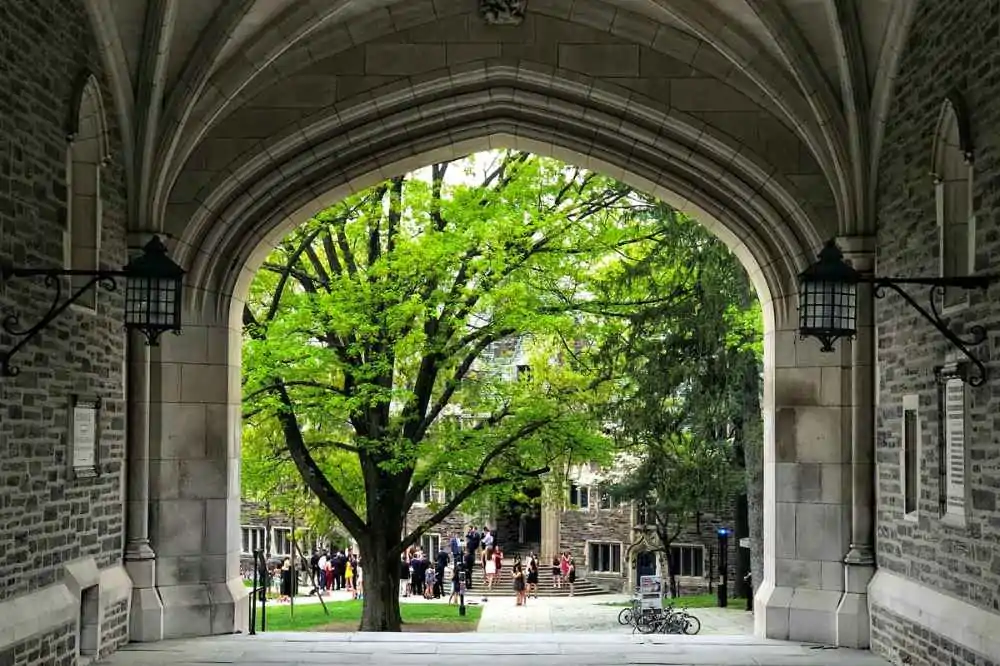
The US News Rankings for Medical School are omnipresent when students consider medical schools (and college, as well as other graduate schools). But should it be? With the recent withdrawal of several prominent law schools from the US News Rankings, many people are wondering what the future holds for the US News Rankings for medical schools in America. As a parent or student, you may be wondering what this means for you and your plans. Here is a breakdown of the rankings and how students should and should not utilize them in their search for medical school.
The US News Rankings for Medical School and What they Mean for Students
US News Rankings for Medical School provides potential students with a guide to understanding how US medical schools compare against one another. US News ranks medical schools based on many measures of a program’s quality, such as faculty resources and primary care education, allowing prospective students to gain deeper insight into the academic experience they can hope to expect at a given school. US News also produces specialty rankings that pertain to specific fields of study within medicine, giving those on the hunt for further specialization a powerful tool in their search for the right school and intended career path.
Criticism of the US News Rankings for College and Graduate Schools
Numerous critiques exist for the US News rankings for college and these critiques have been highlighted by various individuals, organizations and outlets. Many of the criticisms revolve around the lack of transparency with how scores are determined, outdated criteria and the influence of money in the rankings. The rankings are usually influenced by things like MCAT score and GPA, as well as student indebtedness. This means that medical schools will often emphasize these factors to “climb” the rankings. Accepting a student with a higher MCAT score can bring the average MCAT of a particular school up, which in turn causes it to rise in the rankings. However, MCAT score is not an indicator of a better future physician. Worse, students who achieve high MCAT scores sometimes have the benefit of expensive preparation programs, the luxury of extra study time or gap years and more. A student with less extensive resources, one who needs to hold a job through college for instance because family finances are more stretched, may not be able to devote the needed time for MCAT studying.
Because the rankings also consider average indebtedness of students, schools could be incentivized to find students who are less likely to need financial aid. This again disadvantages those from under-represented backgrounds. Overall, the rankings are known to be deeply flawed, with schools even accused on lying to improve their rankings. However, pre-medical students remain heavily influenced by these rankings despite the criticism.
Despite the rankings’ overall popularity among prospective medical students, many experts argue that rankings do not accurately reflect the quality of a medical school’s education or how successful its graduates are.
US News Law School Rankings – Top Schools Drop Out
Recently, several of the most well- known and highly- ranked law schools in the US have withdrawn from the annual US News Law School Rankings. This has caused a significant amount of speculation as to why these top schools are choosing to leave such a widely recognized benchmark. The reasons behind this decision vary and include problems with the methodology used or a change in administration at the schools who parted ways with the rankings. Schools should be applauded for taking this difficult decision; the domino effect with additional top schools leaving (amongst them Harvard, Yale, Columbia, Georgetown) has proven that the schools are finally taking a stance. It is clear that these historically top-performing law schools are no longer interested in having their reputations crafted by an external source. It will be interesting to follow what consequences this decision has for future rankings and for these institutions’ places in legal academia. No medical schools have dropped out the rankings yet, but they may in the future.
Fixing the US News Rankings for Medical School
Rankings, when not considered as just a single number, can help pre-medical students better understand one school’s general reputation versus another. A tiered approach may be a better approach rather than a single number. After all, is there really any difference between a school ranked #4 and #5? Absolutely not. The next year, that ranking may flip with little to no change at all at the respective schools. However, there maybe a difference in clinical reputation between the #4 ranked school and the #44 ranked school. This type of tiered ranking (without numerical rankings) could help students find and compare medical schools. Keep in mind student may be much better served for their career, needs, family situation and more at a Tier 1a university than a top tier university.
Hypothetical Top Tier (alphabetical order)
Columbia University, Duke, Harvard, Johns Hopkins University, New York University, Northwestern University, Stanford University, University of Chicago, University of Pennsylvania, UCSF, Washington University in St. Louis, Yale
Hypothetical Tier 1a (alphabetical order)
Cornell University, Emory, Mt Sinai Medical School, University of Pittsburgh, University of Michigan, UC San Diego, Vanderbilt University, etc.
Finding the Right Medical School
No single number should ever be used to judge a medical school, but that is sometimes what the US News rankings down to. With a single number assigned to rank each school in the world, it clearly is an oversimplification of medical school excellence and sets unrealistic expectations for applicants to medical schools. The rankings large emphasis on research output and clinical reputation maybe reasonable, but great research does not necessarily make for better doctors. Schools should be judged for their ability to train tomorrow’s healers – something rankings alone cannot comprehend.
We understand that looking for the right medical school can be a daunting task, with rankings and information available from various sources. It is critically important to remember that rankings are only one factor to consider when choosing a medical school – it shouldn’t be used as the sole determining factor when making such an important decision. Looking at feedback from alumni of the school or attending informational events provides valuable insight into the expected educational experience at each potential school. Taking all aspects of each potential medical school into consideration gives one the undoubtedly best chance of finding the perfect fit for their future academic career. Tools like the medical school explorer provide an excellent starting point to evaluate schools.
The US News Rankings for Medical Schools are just one resource for students who are considering a career in medicine, but are full of flaws and well-placed criticism. These rankings can help students identify medical schools and make informed decisions about their future, but should never be used as the solve factor, or even a top factor, when considering schools. Most of the advisors are MedSchoolCoach agree that these rankings should not be considered highly in a students choice. The reality is that US News Rankings are flawed at best, at worst perpetuate high-stress amongst students. The bottom line is that great physicians are produced from every single medical school in the country, and beyond.
Article by:






